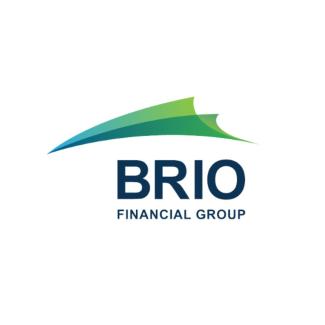
The Solo 401(k)
by Brandon Miller on Oct 9, 2019
Do you work for yourself? Then take a look at the solo 401(k), which marries a traditional employee retirement savings account to a small business profit-sharing plan. To have a solo 401(k), you must either be the lone worker at your business, or its only full-time employee.1
Imagine nearly tripling your retirement savings potential. With a solo 401(k), you have a chance to ramp up your retirement savings and reduce your tax bill at the same time. Here are the details:
*As an employee, you can defer up to $19,000 of your compensation into a solo 401(k). The yearly limit is $25,000 if you are 50 or older, for catch-up contributions are allowed for these plans. (Your annual employee contribution cannot surpass your earned income or salary.)1,2
*As an employer, you can have your business make a tax-deductible, profit-sharing contribution of up to 25% of your compensation as defined by the plan. If your business isn’t incorporated, the annual employer contribution limit is 20% of your net earnings rather than 25%. If you are a self-employed individual, you must calculate the maximum amount of elective deferrals and non-elective contributions you can make using the methods in Internal Revenue Service Publication 560.1,2
*Total employer + employee contributions to a solo 401(k) are capped at $56,000 for 2019.1
*The annual employer contributions you make are tax-deductible, up to I.R.S. limits.3
Are you married? If your spouse earns income from your business, then he or she can also make an employee contribution to the plan in 2019, and you can make another profit-sharing contribution on your spouse’s behalf.3
You can “go Roth” with your solo 401(k). The annual employee contribution limits for a Roth solo 401(k) are the same as those for any 401(k): $19,000 for individuals under 50, and $25,000 for individuals 50 or older. Only employee contributions can be Roth contributions.4
Are plan loans allowed? Sometimes. Certain plan providers do permit them, though standard federal taxes and tax penalties apply if the loan is not paid back within five years. Some also allow hardship withdrawals from these plans (that is, withdrawals taken prior to age 59½).3,4
The administration duties for a solo 401(k) plan are relatively light. There are no compliance testing requirements, and you will only need to file an annual Form 5500 with the I.R.S. when the assets in your solo 401(k) exceed $250,000.3
On the whole, solo 401(k)s give SBOs increased retirement savings potential. If that is what you need, then take a good look at this option. These plans are relatively easy to create, and you are free to have one whether your business is a sole proprietorship, S corporation, C corporation, limited liability company (LLC), or limited partnership. Certain independent contractors have the freedom to create solo 401(k)s as well.5
This material was prepared by MarketingPro, Inc., and does not necessarily represent the views of the presenting party, nor their affiliates. This information has been derived from sources believed to be accurate. Please note - investing involves risk, and past performance is no guarantee of future results. The publisher is not engaged in rendering legal, accounting or other professional services. If assistance is needed, the reader is advised to engage the services of a competent professional. This information should not be construed as investment, tax or legal advice and may not be relied on for the purpose of avoiding any Federal tax penalty. This is neither a solicitation nor recommendation to purchase or sell any investment or insurance product or service, and should not be relied upon as such. All indices are unmanaged and are not illustrative of any particular investment.
The opinions expressed in this article are for general informational purposes only and are not intended to provide specific advice or recommendations for any individual or on any specific security. It is only intended to provide education about the financial industry. To determine which investments may be appropriate for you, consult your financial advisor prior to investing. Any past performance discussed during this program is no guarantee of future results. Any indices referenced for comparison are unmanaged and cannot be invested into directly. As always please remember investing involves risk and possible loss of principal capital; please seek advice from a licensed professional.
Brio Financial Group is a registered investment adviser. Advisory services are only offered to clients or prospective clients where Brio Financial Group and its representatives are properly licensed or exempt from licensure. No advice may be rendered by Brio Financial Group unless a client service agreement is in place.
Citations:
1 - irs.gov/retirement-plans/one-participant-401k-plans [6/18/19]
2 - forbes.com/sites/davidrae/2019/05/08/individual-401k [5/8/19]
3 - tdameritrade.com/retirement-planning/small-business/individual-401k.page [9/19/19]
4 - investor.vanguard.com/small-business-retirement-plans/individual-solo-401k [9/19/19]
5 - businessnewsdaily.com/15129-self-employed-401k.html [6/17/19]
